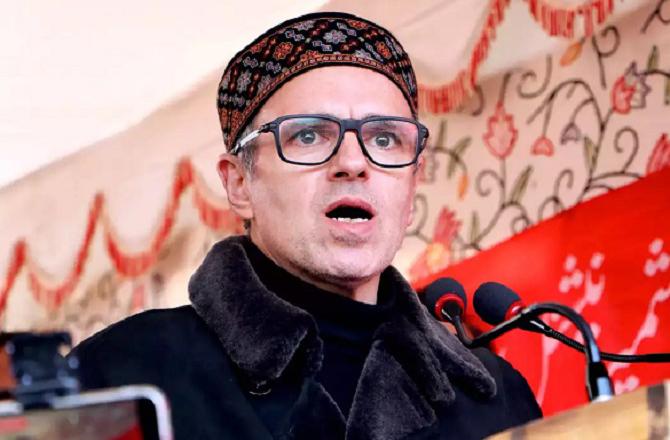Political circles in Indian illegally occupied Jammu and Kashmir are abuzz with speculation following Chief Minister Omar Abdullah’s statement that he would step down if statehood is not restored within a fixed timeframe. However, observers have dismissed his remark as political theatrics, noting that real authority in the occupied territory still lies with the New Delhi-appointed Lieutenant Governor, Manoj Sinha.
Omar Abdullah made the statement during an interview with NDTV, asserting that he would resign as Chief Minister if the union territory’s downgraded status was not reversed soon. His comments have sparked debate over whether the National Conference (NC) leader’s threat is a principled stand or an attempt to regain lost ground after the party’s unexpected setback in the recent Rajya Sabha elections.
Despite heading the NC-led government, Omar Abdullah is widely seen as a namesake Chief Minister, as the Lieutenant Governor continues to hold decisive administrative, security, and legislative powers under India’s post-Article 370 arrangement. Critics argue that his latest remarks are a mere face-saving tactic amid growing discontent over his limited authority and the perception that the NC has compromised its political stance to stay in power.
The controversy follows the recent Rajya Sabha elections, where the NC secured three of four contested seats while the Bharatiya Janata Party (BJP) surprisingly won one. Omar Abdullah has accused several non-NC legislators of cross-voting in favour of the BJP candidate.
Analysts say Omar Abdullah’s statement on resignation over statehood reflects the deep political uncertainty in IIOJK, where the façade of democratic governance continues under New Delhi’s direct control. They note that his words highlight both his party’s desperation to appear relevant and the persistent denial of genuine autonomy to the people of Jammu and Kashmir.






